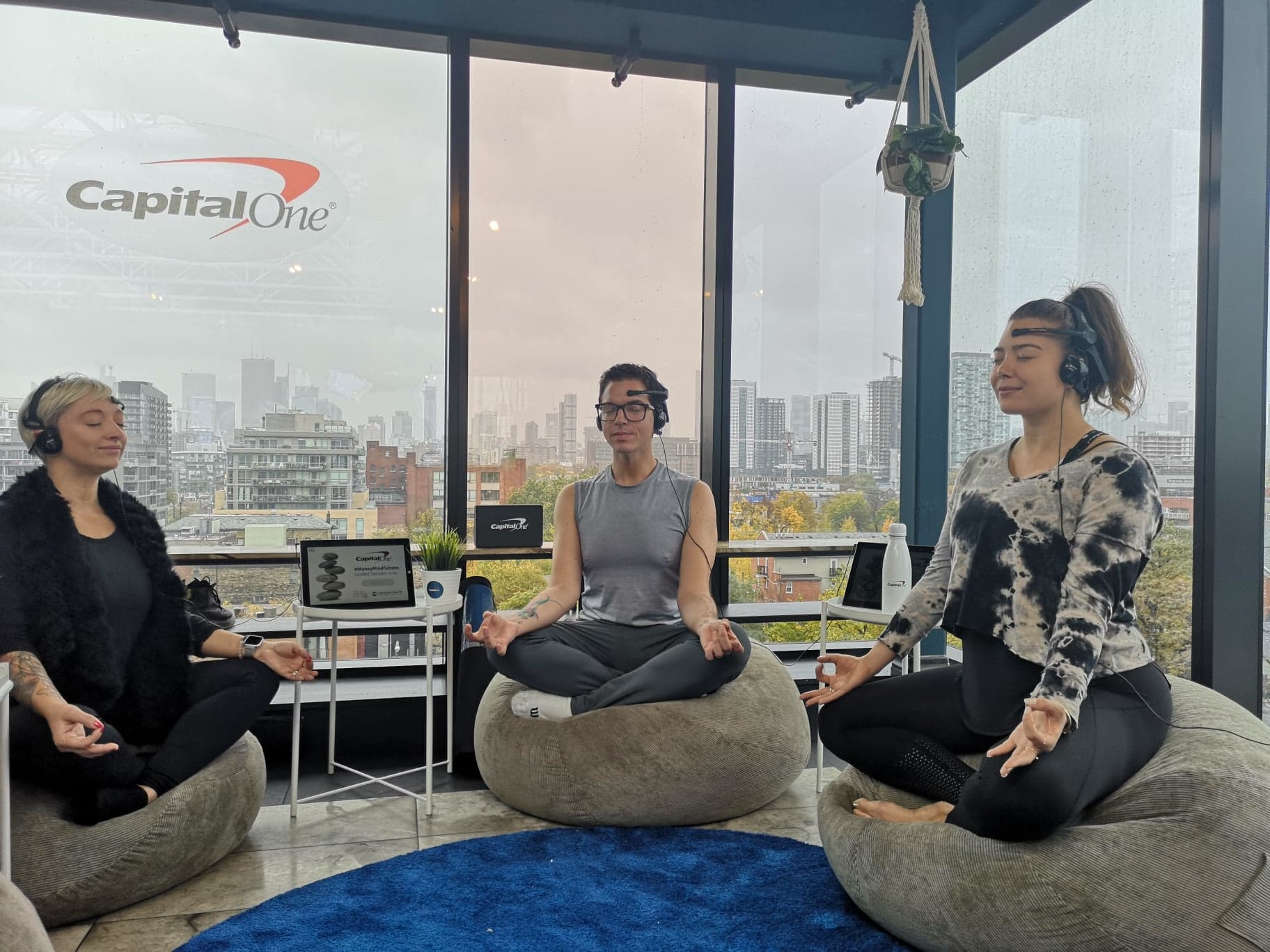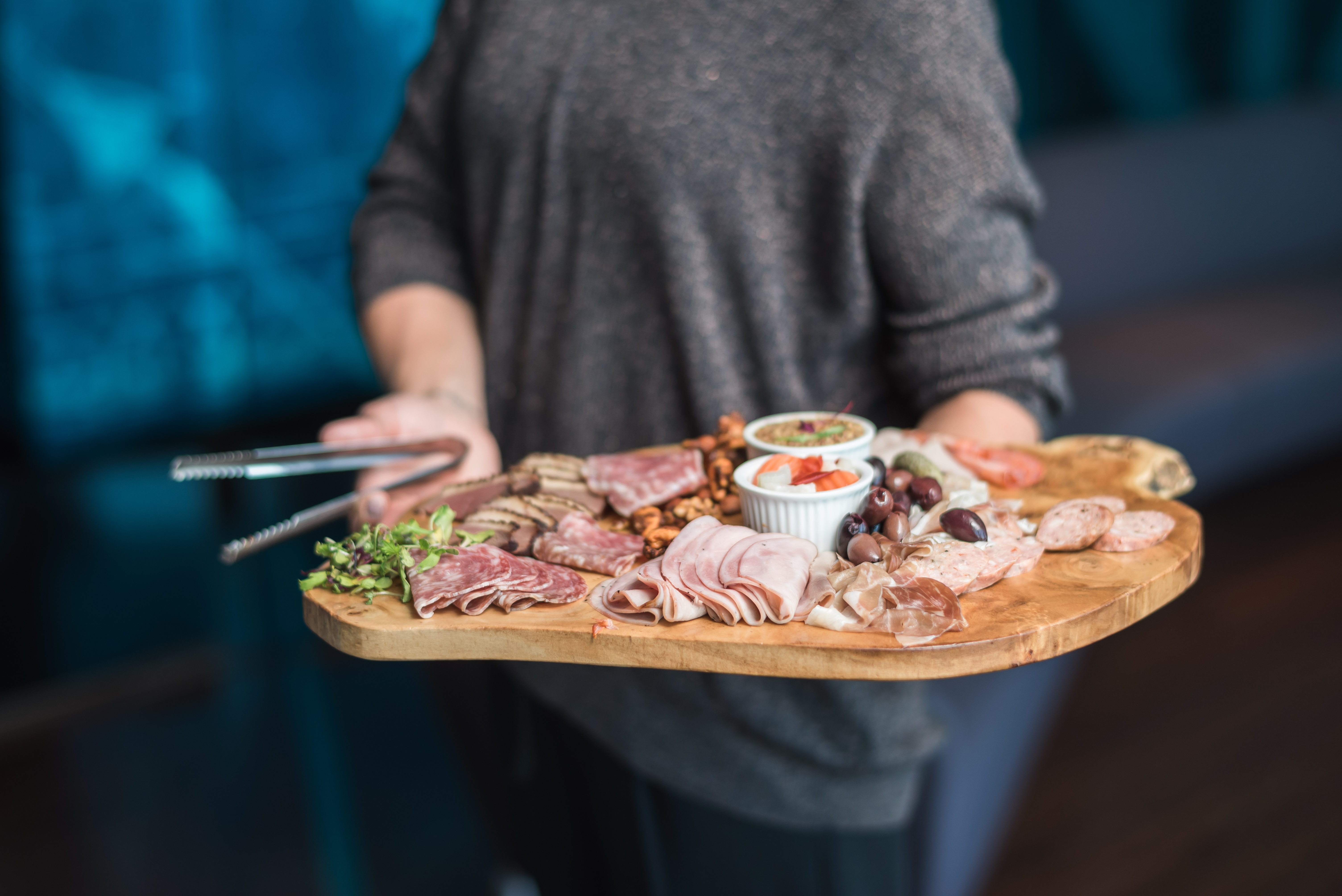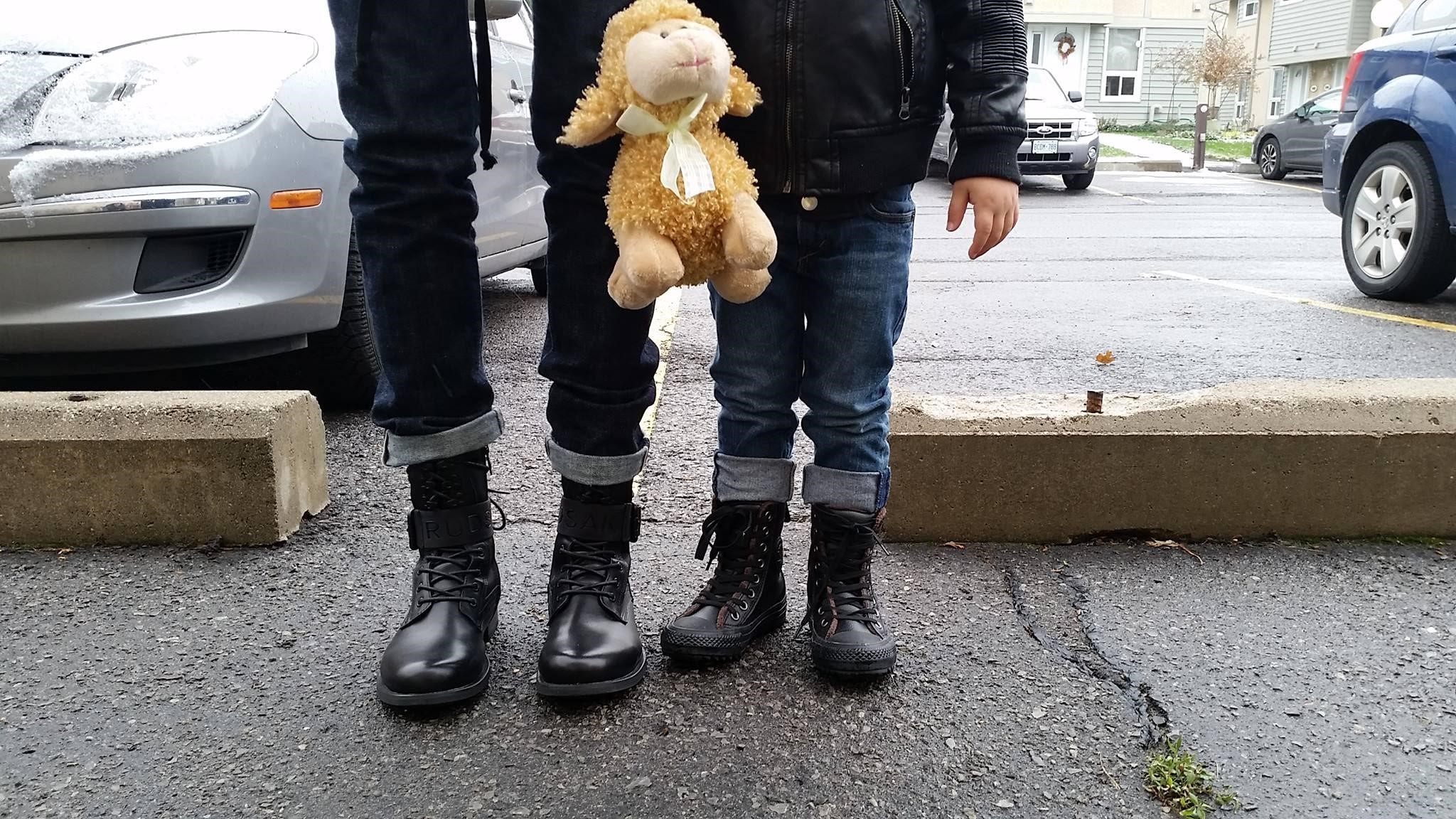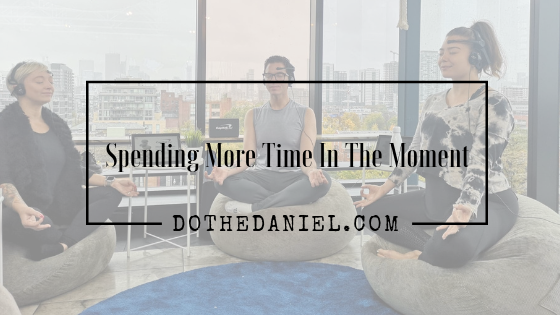*Please note that this is a sponsored post with Capital One Canada – our disclosure can always be found by clicking here.
For those of you who follow along with us on social media, you’ll have noticed that recently I had the pleasure of spending the morning with Capital One Canada at The Broadview Hotel here in Toronto. Centered around the idea of mindfulness, something that I’ll be honest I haven’t always been very good at, it turned out to be one of the most inspiring moments I have had in a very long time. Not only reminding me what it was like to reconnect with my friends in this industry, it also provided me with some concrete tools to be more mindful in my day-to-day life. As we get closer to the excitement of Credit Education Week, I thought I would share my five tips to #MoneyMindfulness with you all in hopes that just like how Capital One Canada inspired me to be better, I can do the same for you heading into the holiday season.

The morning gathered together some incredible influencers to talk about what it means to be mindful, but also to talk about money and creating and maintaining healthy habits when it comes to spending money, using credit and even saving money. As a subject matter that can most times bring about lots of stress or embarrassment, the concept of #MoneyMindfulness is about dispelling some things that can keep me up at night – and I’m sure some of you feel the same way. From the mindful practise above which involved focusing on healthy thoughts and focus exercises using engaging meditation technology, to JOGA with Jana Webb, I was able to remind myself that I deserve as much time as I give others.
So, let’s start talking about some facts before I share my four tips to be more mindful in my day-to-day life.
DYK that 44% of Canadians believe their financial situation negatively impacts their mental health, according to a recent survey by Capital One Canada (Capital One) and Credit Canada Debt Solutions (Credit Canada). I know that for me, money was often the topic that started fights in relationships not only with my partners but also with my family. For the most part we are told it is a taboo subject matter, but why does that have to be the case anymore? Considering there are shows like the Luxury Trap (luksusfellen in Norway), it seems as though dealing with financial hardships is something many of us go through and there’s no harm in asking for some help/advice from people who know how to get you on the right track again. I think that similarly to the myths we have tackled in the past here on the blog, it’s important for us to start honest and open discussions around money as well.
The same study found that “more than three-quarters (76%) of Canadians have already missed out on special experiences in order to save money, including vacations (53%), expensive dinners (44%) and personal grooming (36%). Over half (56%) said they are willing to make drastic sacrifices to become debt free, including never travelling or vacationing again (23%), not eating out (21%), and even embracing a no-spend diet (20%).” While I know that I personally have taken steps towards better spending habits such as giving myself a coffee budget every week, and setting daily spending goals, I don’t ever want to feel like I’m being restricted either. I believe that there can be a healthy balance without being ignorant of my debt and credit situation.

While the majority of Canadians (79%) don’t mind reviewing their personal finances, one in five (21%) would go to extremes to avoid reviewing their personal finances, including:
- Eating dinner with an ex-friend or ex-significant other (11%)
- Getting stung by a bee (7%)
- Sit through a root canal (6%)
- Sitting next to a sick passenger on a long-haul flight (4%)
Let’s maybe realize that money doesn’t have to be this scary. There are loads of ways to make and save money and you can learn about them on The Money Sack. I’ve even been very honest with you all along our partnership with Capital One Canada to divulge that my inability to talk about and be mindful of money led me to bankruptcy in my early twenties. Though it wasn’t the financial path I wanted for myself, it is one that has helped me understand my finances in a more palpable fashion. My hope is that having these discussions with you will help you to avoid the errors and lessons I had to learn the hard way. It’s only with some mindful planning and dedication to myself and my finances that I will achieve the things I want in life like a family.

As mentioned above, finances and money are some of the biggest hot button issues in most relationships I have been in or know of. One in four Canadians (26%) have hidden their financial situation from loved ones at some point, whether it’s by using credit to purchase something they couldn’t afford (11%), lying to avoid spending money (11%) or lying about their current financial situation (10%).
- Millennials are more likely to hide their financial situation (40%) compared with just 11% of those ages 55+.
- Those with financial stress as their largest day-to-day worry (41%) and those carrying debt (36%) are more likely than other Canadians to conceal their financial situation

So in light of #CEWC2018 (which I hope to see many of you at!) coming later this month, I wanted to share my top 4 ways to achieve #MoneyMindfulness thanks to Capital One Canada.
1. Put Your Phone Down
Although worrying is natural, many of us are addicted to our phones for social media and checking on our money and current balances we are carrying. I know that I can usually be found seeing what my credit card balance is. But what I have learned is that the more I check it, the more anxious I can become. If you are in the midst of feeling under the pressure of your financial situation, or unsure of what to do, it is time to schedule a meeting with a professional who can help you.
2. Find Your Own Health
Similar to how not everyone is going to love spinning as much as I do for their physical fitness goals, not all budgets or money strategies will be the right fit for you. Sitting down at the end of each month to create a budget that is realistic for my goals based upon my income and essentials (including savings, no matter how small) is crucial for me to feel prepared.
3. Put Your Money Where Your Mouth Is
Setting intentions is an important part of my daily routine. I surround myself with things that make me happy, carry crystals and try my best to be a good person. Similarly, I try to put my money where my mouth is when it comes to my spending habits. If I sat here and preached about saving and working on budget tracking but didn’t do it myself, I would be hypocritical. I want to always share a journey, even if it is a difficult one, because even if your current financial situation is hard, there is always a path to being in a better place. Google budget tracker apps that you feel you’re comfortable using and be honest with yourself. Sometimes it’s just a matter of seeing the numbers in black and white to help you understand your own reality.
4. What is a want? What is a need?
This is one that I still battle on a regular basis. I think in a world where it is easier than ever to Apple or Google Pay for something, or checkout with the push of a button, we sometimes impulsively buy without being mindful of the bill that will come at the end of the month. This could leave you short when it comes to time to pay the bills, meaning you’re in big trouble. This is where most people get into debt, so it is important you always have enough money to pay your bills. If you find your utility bills are costing a lot and leaving you with very little money for spending, you might want to check out The Top Ten Ways to Save on Your Power Bill. Lately, I have been adding items to my wish list when online shopping and giving myself a day to think about it. If I still need it the next day or find that I have set aside the budget for it appropriately, I’ll buy it. If not, I move on and remember that small choices like this one can make a big difference in the future. If you’re good with saving and looking to get some extra money, then maybe you could consider becoming an investor. There’s a website called Stocktrades.ca who offer great support on starting up, as well as access to the best stocks in Canada. So this may be a path worth considering if you’re after some extra money.
“To help Canadians address those concerns, Capital One and Credit Canada have announced that this year’s Credit Education Week , taking place nationally from November 13-16, will focus on the theme of #MoneyMindfulness. The event will aim to educate and empower Canadians with the knowledge and tools to help mitigate financial stress.” – and it is with conversations like this one that we can all work towards the goal of #MoneyMindfulness together.
For more information on Capital One Canada and their range of products suited to your spending needs on the path to your financial goals, make sure to check out www.capitalone.ca.
I encourage you to join the social media conversation while learning more about your credit options by following @CapitalOneCA on Twitter and Instagram, and @CapitalOneCanada on Facebook. Use and follow the #CEWC2018 and #MoneyMindfulness hashtag to see how our fellow ambassadors enjoyed their experiences alongside us and to join in the excitement leading up to and during Credit Education Week!
For more behind the scenes information and other amazing brands we are working with globally, make sure to follow along with the #DoTheDaniel Instagram account. We would love to have you join us on our adventures!
Don’t forget to sign up for the DoTheDaniel.com Newsletter
Also, check out www.cewc.ca for more details on all the Credit Education Week 2018 activities.
Photos: All social media accounts listed above, Capital One Canada & Daniel Reyes
Data is based on a survey of 1,534 randomly selected adult Canadian respondents in August 2018.
Cheers!
Mobile photos were taken with my #HuaweiP20Pro on the Rogers network
